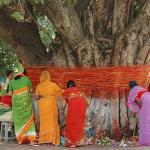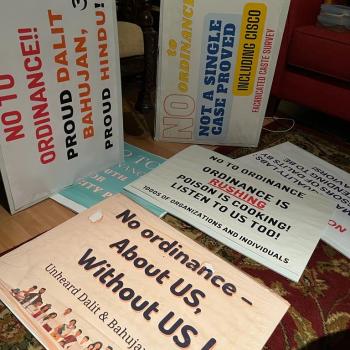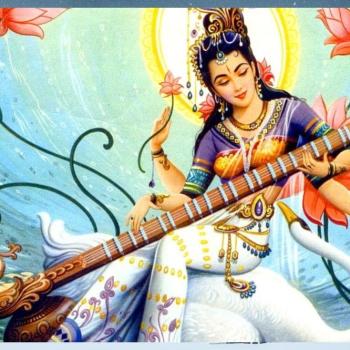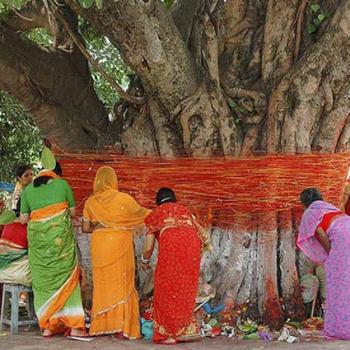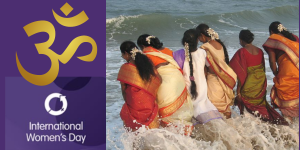
“There is no chance for the welfare of the world unless the condition of women is improved.” These might sound like the words of modern-day progressive. Or maybe it’s the latest slogan for International Women’s Day! After all the theme for 2024 is to “Invest in Women-Accelerate Progress”
However, these words date to the 19th century, from Swami Vivekananda, a iconic Hindu philosopher and monk. And in speaking as he did, one could argue, his thoughts were nothing more than an update on the broader focus on women within the Hindu faith and their central place in the heart of Hindu society. After all, a famous and ancient Sanskrit shloka declares:
Yatra naryastu pujyante ramante tatra Devata,
yatraitaastu na pujyante sarvaastatrafalaah kriyaah!
Meaning- Where women are honored, divinity blossoms there. And where women are dishonored, all action, no matter how noble remain unfruitful.
Women enjoy a unique place of honor in Hinduism, also known as Sanatana Dharma. The Sanskrit word for energy, power and strength, is Shakti – a word that is also used as a synonym for female divinity. And shakti personifies in many ways – from the benevolent and nurturing Devi Saraswati and a fierce unbridled Devi Kali, to all conquering warriors like Devi Durga! There are numerous Hindu scriptures detailing and celebrating the power of Shakti including the Devi Upanishad, Devi Mahatmya, Devi-Bhagavata Purana, Devi Sukta and many more.
While it is well known that Hinduism is the only major world faith to worship the feminine divine, less discussed is the role and space accorded to Hindu women in daily life. The world today recognizes the power of “representation” – and this is where Hindu women have always had a lead!
The importance of this representation cannot be stressed enough. Attributes that exemplify masculinity in the western world are seen as fundamentally female in the Hindu worldview! This creates an environment, where it is normal for Hindu society as a whole, to see femininity as strong, as powerful and as a leader.
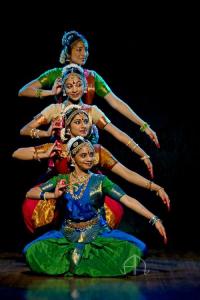 With so many role models to emulate, it is no surprise that stories of strong Hindu women dominate through the thousands of years of our history.
With so many role models to emulate, it is no surprise that stories of strong Hindu women dominate through the thousands of years of our history.
Hindu men and women alike, grow up seeing images and hearing stories of Devi as the provider of boons, the leader of warriors, the giver of wealth, knowledge and so much more. So it feels very natural to compliment a talented singer as an embodiment of Saraswati herself. Similarly, a warrior queen leading her troops into battle is seen as Durga and an angry woman may be seen as channeling her inner Kali.
Representation in Real Life
How has the power of representation manifested in real life for Hindu women? The answers are all around us.
The world’s oldest female authors are found in the Rig Veda– a Hindu scripture. Famous as the oldest religious text in the world, it features numerous rishikas – female sages and poets among its contributors. Hindu women continued to make their mark as faith leaders and philosophers thru the ages and even today in India, one can find numerous educational institutions named for prominent women philosophers like Ghosha, Gargi, Maitreyi, Lopamudra and others. As late as the eighth century CE, Ubhaya Bharti moderated Adi Shankaracharya’s iconic theological debate. The devotional poems of 16th century MiraBai continue to inspire popular music in the 21st century and saints like Mata Amritanandmayi inspire millions around the world.
Hindu women have also repeatedly embodied Shakti in the form of warriors who exhibited ferocious valor against their enemies. Kittur Chennamma, LakshmiBai of Jhansi, Rani Durgavari, Onake Obavya, Keladi Chennamma, JhalkariBai, Abbakka Rani, AvantiBai are just some of women who fought for their rights and for justice.
By the 19th century , when Swami Vivekananda spoke of the connected welfare of women and society, one can speculate that he was responding to the parallels between the poor state of Hindu Women and the poor state of the country itself. Following centuries of brutal invasions and colonization, Hindu women had seen many of their traditional rights curtailed and seen a degradation of their traditional status.
Yet, it is a testament to the strength of these traditions, that as Hindu majority India became independent and began to decolonize, it immediately accorded full rights to women to vote and participate in public life. It also quickly became one of the few countries to elect a female head of state (Indira Gandhi in 1966) and continues to have female leadership at the highest level. All other sectors see similar participation and excellence from women.
True to the promise of the scriptures, the development and growth of India is mirroring how far its women have come in reclaiming their traditional status and embodying shakti. This Women’s Day and through Women’s History Month, lets embrace our inner shakti to overcome barriers and continue the journey to a more inclusive world.


